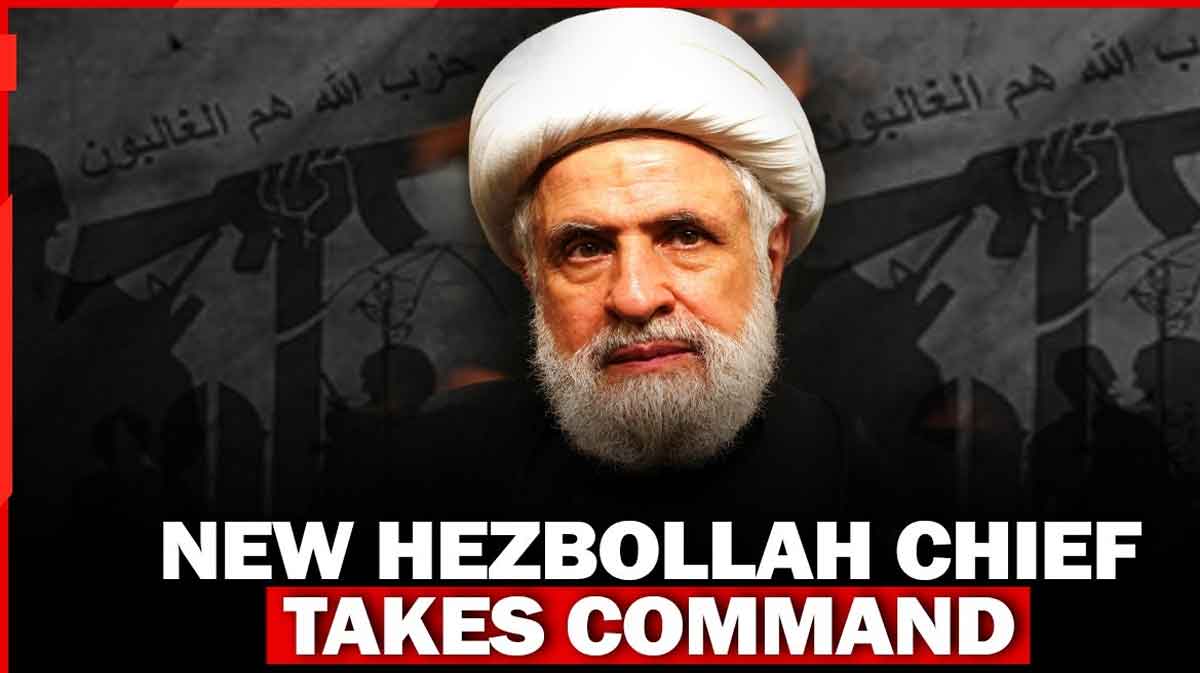- Hezbollah elects deputy head Naim Qassem as new leader
- Qassem replaces Hassan Nasrallah who was killed last month
- Qassem one of Hezbollah’s leading spokesmen
A Leadership Shift Amid Rising Tensions
In the wake of increasing hostilities and strategic losses, Hezbollah has named Naim Qassem, former deputy head, as its new leader. Qassem steps into the role following the death of Hassan Nasrallah, Hezbollah’s long-standing leader who was recently killed in an Israeli airstrike in Beirut. The appointment signals Hezbollah’s ongoing commitment to its fight against Israel, though the leadership transition has left many speculating about how Qassem’s approach might influence the organization’s future direction in a region already fraught with conflict.
Hezbollah’s Response to Nasrallah’s Death
Hassan Nasrallah’s death on September 27 marked a significant blow to Hezbollah, disrupting its command structure and removing a charismatic figure who had led the group since the early 1990s. Nasrallah, a veteran of Lebanon’s resistance movement, was instrumental in shaping Hezbollah’s aggressive stance against Israel and played a key role in its regional strategies. His death was followed by the killing of another prominent Hezbollah figure, Hashem Safieddine, who was initially seen as his likely successor. The rapid succession of losses left Hezbollah in urgent need of new leadership.
In response, Hezbollah’s Shura Council convened to confirm Naim Qassem, 71, as Nasrallah’s successor. Qassem has served as Hezbollah’s deputy leader since 1991, appointed by then-leader Abbas al-Musawi, who was also assassinated by Israel in 1992. Known for his experience and loyalty, Qassem has been a steady figure within the organization, frequently appearing as a spokesperson and conducting interviews during periods of heightened cross-border tension.
Israel’s Reaction and Regional Implications
Israel’s official response to Qassem’s appointment was swift and foreboding. The Israeli government’s Arabic account on X (formerly Twitter) stated that Qassem’s tenure could be “the shortest in Hezbollah’s history” if he follows the path of his predecessors. The statement underscores Israel’s hardline stance against Hezbollah and its commitment to dismantling the organization’s military power. Israel’s Ministry of Defense reiterated that “dismantling Hezbollah as a military force” remains the only viable solution for stability in Lebanon.
With Qassem now in charge, Hezbollah faces the challenge of rebuilding its leadership while navigating intensifying pressure from Israel and escalating violence in Gaza. Qassem has publicly supported efforts toward a ceasefire for Lebanon, though his leadership may lack the charisma of Nasrallah, potentially affecting Hezbollah’s internal cohesion and external influence.
Escalating Conflict in Gaza
As Hezbollah transitions leadership, violence in Gaza has continued to surge. In a recent Israeli airstrike, at least 60 Palestinian civilians, predominantly women and children, were killed in a northern Gaza building where displaced families had taken shelter. The Gaza Health Ministry reported that the strike left another 20 wounded, illustrating the escalating humanitarian toll. The mounting civilian casualties in Gaza have amplified calls for a ceasefire and raised concerns about the regional impact of further violence between Israel and Palestinian territories.
New Leadership, Uncertain Future
Hezbollah’s appointment of Naim Qassem as its new leader marks a crucial juncture for the organization, which must now recalibrate under a less charismatic yet deeply experienced figurehead. As violence continues in Gaza and Israel intensifies its stance, Qassem’s leadership will be tested on multiple fronts, from maintaining Hezbollah’s operational strategies to managing diplomatic and military pressures from Israel.
The leadership shift comes amid one of the most turbulent periods in recent Middle Eastern history, and it remains uncertain how Hezbollah’s new direction under Qassem might influence Lebanon’s stability and the wider region’s future.
(With inputs from agencies)





